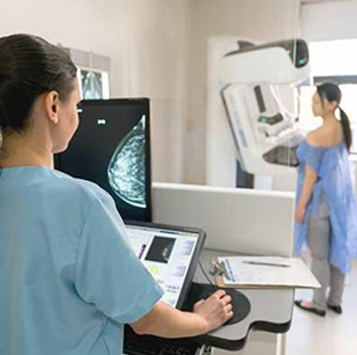Cancer Screenings
Cancer screenings are tests that are used to detect cancer at an early stage, before symptoms appear. Early detection can lead to earlier treatment and a better chance of a positive outcome. There are several types of cancer screenings available, and the specific tests recommended will depend on a person's age, gender, and medical history.
Some common cancer screenings include:
- Mammogram: A mammogram is a screening test for breast cancer that uses X-rays to create images of the breast tissue. Women are recommended to have regular mammograms starting at age 50, or earlier if they have a higher risk of developing breast cancer.
- Pap test: A Pap test, also known as a Pap smear, is a screening test for cervical cancer that involves collecting cells from the cervix and examining them under a microscope. Women are recommended to have regular Pap tests starting at age 21.
- Colonoscopy: A colonoscopy is a screening test for colon cancer that involves using a flexible tube with a camera to examine the colon and rectum. People are recommended to have regular colonoscopies starting at age 50, or earlier if they have a higher risk of developing colon cancer.
- Prostate-specific antigen (PSA) test: The PSA test is a blood test used to screen for prostate cancer. Men are recommended to discuss the benefits and risks of PSA testing with their doctor, as the test may not always detect early-stage prostate cancer and may lead to overdiagnosis and overtreatment.
- Lung cancer screening: A low-dose CT scan of the chest is recommended for individuals who have a high risk of developing lung cancer, such as those with a history of smoking.







